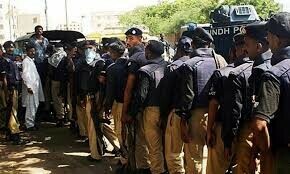LAHORE: Through a proposed legislation, the Punjab government intends to establish a supreme provincial authority to streamline regulatory measures and ensure effective enforcement of special laws, in a bid to implement a “uniform overarching strategy on regulatory compliance”.
The Punjab Enforcement and Regulation Act (PERA) 2024, which is due to be taken up by a standing committee today (Friday), aims to launch a mechanism to enforce three acts – The Colonisation of Government Lands (Punjab) Act 1912; The Punjab Prevention of Hoarding Act 2020; and The Punjab Price Control of Essential Commodities Act 2024.
It may, however, be mentioned that the three already scheduled laws also provide for enforcement mechanisms.
The proposed bill empowers the authority to establish “enforcement stations” parallel to traditional police stations and allows enforcement officers to conduct inspections, patrol, and search any person or vehicle, seize articles and goods and make arrests – which have inherently been the core functions of police.
Critics see proposed authority an attempt to ‘grab’ police powers; lawmakers concerned over bureaucrats’ majority in proposed CM-led board
The enforcement officers are also being authorised to collect evidence through electronic means, such as CCTV camera recording; audio and video recording, photographs, caller data records, geo-fencing, mobile device tracking, cyber surveillance, digital forensics and artificial intelligence detection.
The bill proposes an 18-member board, comprising 10 senior bureaucrats, four elected members of the Punjab Assembly, including the chief minister, and four independent members – to be selected by a non-representative selection panel.
The PERA bill, approved by the Punjab cabinet and tabled in the provincial assembly on Aug 11, has proposed a board having an overwhelming majority of senior bureaucrats, while elected members – including the chief minister – seem to be in a minority. The board will be taking policy decisions on a majority vote basis.
Interestingly, no cabinet member has been proposed to be a part of the board. Moreover, members from law enforcement agencies are also conspicuous by their absence from the proposed composition.
The chief minister will be the chairperson of the authority. The Standing Committee on S&GAD identified several legal anomalies in its maiden meeting on Wednesday, including the constitution of the PERA board.
‘Deviation from established norms’
A member of the S&GAD committee told Dawn that the bill faced harsh criticism during the PA committee proceedings. Lawmakers vehemently opposed the constitution of the board that proposed the Punjab chief secretary as the vice-chairman, which was a deviation from established norms as in the case of government authorities, such as the Lahore Development Authority.
A committee member, seeking anonymity, said that in the absence of the chief minister, the chief secretary would be an all-powerful functionary with the support of the majority of senior bureaucrats and be in a position to make arbitrary decisions. “The powers of an elected office-bearer cannot be transferred to an un-elected individual,” said the committee member. The member explained that as per the Punjab Parliamentary Privileges Act (PPPA), “any meeting convened by the government or semi-government institution or autonomous body, in which a member (Punjab Assembly) is supposed to participate shall be presided over by the member.”
The member said the bill suggested that “any act, decision, order or proceedings of the authority or a committee constituted by the authority shall not be rendered invalid merely by reason of any vacancy or defect in the constitution of the authority”.
It may be mentioned that the proposed bill attempts to give “indemnity” to the government, the authority or any member or employee of the authority for its acts of omission and commission done in good faith. Sources in the CM office told Dawn that the establishment of the proposed authority seemed an attempt to grab the powers of police, which were taken out of the civil bureaucracy’s control after the enactment of Police Order 2002.
Sources stated the Punjab cabinet had also approved the allocation of some Rs17 billion for the establishment of the authority, including Rs4.521 billion for the procurement of transport, equipment and gadgets besides an annual recurring operational cost of Rs7.618 billion. The bill also proposes a derb, which will be headed by the deputy commissioner concerned and additional deputy commissioner (general) will act as secretary to the board.
Enforcement stations
The bill proposes enforcement stations other than traditional police stations at each sub-division level across the province, headed by a BS-16 enforcement officer. The bill states that the enforcement squad shall wear such uniform and carry such weapons and ammunition as may be prescribed.
The bill proposes that the government may by a notification amend the schedule. A standing committee member stated that this proposed power is in contravention of the powers vested in the Punjab Assembly.
Published in Dawn, August 30th, 2024














































Dear visitor, the comments section is undergoing an overhaul and will return soon.